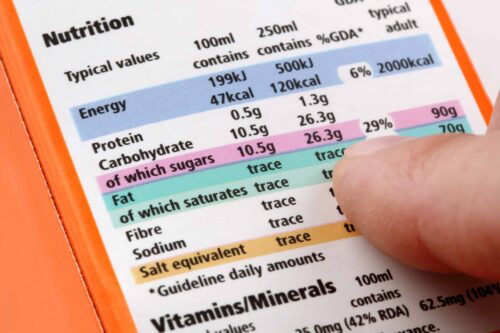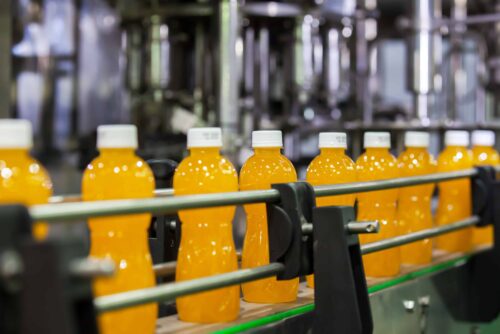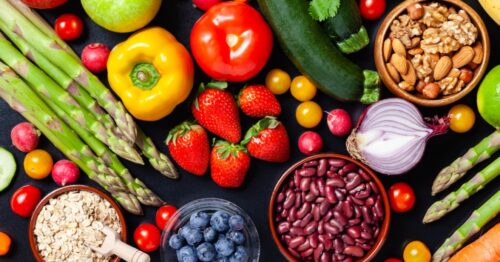We help you design and launch innovative,
best-in-class supplements
Are you facing a regulatory or scientific issue with your next product?
It’s likely we have already encountered and solved your problem. Our specialized regulatory & scientific compliance software for dietary supplements and knowledgeable, experienced scientific and regulatory departments enable us to offer innovative, personalized and strategic solutions.
Our wide range of nutraceutical expertise enables our team to solve the greatest challenges and address even the most complex issues.


Clinical Study Protocol
Clinical study protocol design aiming to substantiate Health claim or Novel Food authorizations

Novel Food Application
Pre-market authorisation of novel foods for EU market

Food Additives
Evaluation of the regulatory status of food additives within the European Union (regulations 1333/2008).

Formulation
Theoretical formulations with appropriate efficacy, safety dosages and ingredients that may allow the use of health claims.

Health Claims
We help you understand what you can say about your product and the relationship between ingredients and health benefits.

ODI, NDI, GRAS
Audit of the regulatory status of ingredients for use in foods and/or dietary supplements in the US.

Quality
Ensure the quality of your products and protect your brand

Regulatory Compliance Audit and Notification
Formula analysis, labeling compliance and notification for your product

Scientific Review / Medical Writing
Efficacy & Safety Literature Review

Scientific and Regulatory Training in Nutrition and Health
Personalized training sessions for Supplements regulation
Expertise
Our experts also provide support on the following topics:
Ingredients (vitamins/minerals, botanicals, substances, additives, etc.)
Vitamins/Minerals, Botanicals, Bioactives, Additives…
Numerous legislations concerning food ingredients have to be taken into account for product formulation, particularly:
– Regulation (EC) N° 1333/2008 on food additives
– Regulation (EC) N° 1334/2008 on food flavourings
– Regulation (EC) N° 1332/2008 on food enzymes
– Positive lists of vitamins and minerals from Directive 2002/46/EC, Regulation (EU) N° 609/2013 and Regulation (EC) N° 1925/2006
– Regulation (EU) 2015/2283 on novel foods which have not been used for human consumption to a significant degree within Europe prior to 15 May 1997, for which an authorization is needed to place the product on the market
Some specific domestic rules may exist for substances with a nutritional or physiological effect and botanicals, the use of which is not currently harmonized across Europe. Each European Member State may have its own positive and/or negative list, with possible specific conditions of use (parts of plants, warnings, maximum doses, etc).
Communication on those ingredients is regulated by Regulation (EC) N° 1924/2006 on nutrition and health claims.
Sports Nutrition
According to Regulation (EU) N° 609/2013 concerning the revision of PARNUTS legislation, sports foods are now classified on a case-by-case basis as fortified foods or food supplements, with possible nutrition and health claims. Composition and notification processes for food supplements and/or fortified foods should be checked against domestic specifications.
General food law (food safety, information to consumers, novel foods, nutrition and health claims,…) also applies to sport foods.
Foods for Special Medical Purposes (FSMP)
Foods for special medical purposes (FSMP) are intended for the dietary management of patients and may be used only under medical supervision. They are regulated for composition and labeling by Regulation (EU) N° 609/2013 and Regulation (EU) 2016/128 as regards the specific compositional and information requirements for Food for Special Medical Purposes. This Regulation applies instead of Directive 1999/21/EC since 22 February 2019 for FSMP developed to satisfy the nutritional requirements of people other than infants and since 22 February 2020 for FSMP developed to satisfy the nutritional requirements of infants as the delegated Regulation (EU) 2016/127 concerning infant formula and follow-up formula).
These products must be notified at national level and competent Authorities may request a bibliographic dossier justifying that the product meets the specific requirements of the target population.
General food law (food safety, information to consumers, novel foods, nutrition and health claims,…) also applies to FSMP.
Infant Nutrition
Intended for children under three years old who have specific nutrition requirements, infant formulas, follow-on formulas and other foods intended for infants and young children (meals, desserts, processed cereal-based foods, etc.) are specifically regulated at European level concerning composition, labelling and communication by Regulation (EU) N° 609/2013 and specific delegated acts by category.
For infant formula and follow-on formula, Regulation (EU) No 609/2013 suppelments Regulation (EU) No 2016/127 in regard to the specific compositional and information requirements for infant formula and follow-on formula. Directive 2006/141/EC was repealed as of 22 February 2020 but continued to apply until 21 February 2022 for infant formula and follow-on formula manufactured from protein hydrolysates.
Infant formula and some follow-on formula (depending on the composition) must be notified at the national level.
For processed cereal-based foods and baby foods, Directive 2006/125/EC continues to apply, pending the publication of a new delegated act.
General food law (food safety, information to consumers, novel foods, nutrition and health claims, etc.) also applies to foods for infants and young children without prejudice to their specific provisions.
Meal Replacements
Foods for weight control are regulated by specific provisions on composition and labeling according to Directive 96/8/EC on foods intended for use in energy-restricted diets for weight reduction. Regulation (EU) N° 609/2013 provides that the current directive will be replaced by a new delegated act: Regulation (EU) 2017/1798 will apply instead of Directive 96/8/EC from 27 October 2022.
From July 2016, according to Regulation (EU) N° 609/2013 concerning the revision of PARNUTS legislation, meal replacements for weight control are ordinary foods or fortified foods: the two authorized health claims on meal replacements may continue to be used, the conditions of use of those claims are amended by Regulation (EU) 2016/1413.
General food law (food safety, information to consumers, novel foods, nutrition and health claims, etc.) also applies to foods for weight control.
Fortified Foods
Fortified foods are ordinary foodstuffs to which vitamins, minerals or other substances with a nutritional or physiological effect have been added. They are regulated by Regulation (EC) N° 1925/2006 establishing the list of authorized vitamins and minerals (and their forms) and the procedures to create a negative list of substances. Some countries have established a notification procedure for those products.
General food law (food safety, information to consumers, novel foods, nutrition and health claims, etc) applies to fortified foods.





